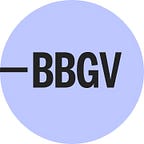Clearing the Path to an Energy Transformation
Symbium is transforming the citizen-government experience, starting with permitting.
We are thrilled to announce our investment in Symbium, a climate- and gov-tech company that has set itself apart in the home electrification space by enabling cities to instantly approve permits for residential climate upgrades. Symbium stands at the intersection of our Climate and Future of Work theses, clearing roadblocks impeding the energy transition while bringing much-needed technology to an underserved government workforce. Their goal is to enable any homeowner, renter, or contractor to understand and visualize what’s possible on a property; submit permits and related rebates; and manage inspections. A key feature of Symbium’s service is its extensive use of Computational Law to facilitate, and even automate, regulatory processes, with the potential to save consumers and governments billions of dollars in manual work as well as time lost. Almost two dozen California cities have signed on to use Symbium — with little or no marketing — and their early traction is a powerful proof point that the right technology can drive climate progress.
The Team We’re Backing:
Symbium’s team came together in Stanford’s AI Lab, with a shared mission to democratize regulations and improve the citizen-government experience. The team has decades of experience spanning software development, product management, and computational law — and has used that expertise to transform complex information into user-friendly tools for residential construction. Leila Banijamali was a CodeX Fellow at Stanford, and collaborated with Stanford AI professor Michael Genesereth to commercialize his research.
Why Symbium is Essential Now:
Symbium can play a pivotal role in realizing the United States’s ambitions for clean electricity. Their work in simplifying regulatory and permitting frameworks is key to expediting the adoption of residential solar energy, heat pumps, EV chargers, reroofing, and electrical panels. The current surge in permitting and rebates is driven by unprecedented tailwinds — both carrots and sticks. The biggest carrot is the estimated $8.8 billion in rebates and tax credits available under the 2022 Inflation Reduction Act. This is capital that every state is eager to access — and Symbium is making it simpler and faster for people in California to tap. Sticks include local regulations exemplified by California state law SB379, which mandates that cities provide accessible, automated, and public-facing permitting for residential solar and energy storage projects by Sep 2024, positioning Symbium as a critical driver in the wider push for streamlining solar and express permits at the top of the funnel.
PG&E’s True North Strategy as a Catalyst for Symbium:
In 2022 PG&E launched its True North Strategy in California, aiming to play a crucial role in the state’s transition to an emissions-neutral, climate-resilient future. This 10-year plan includes a goal to achieve 70% renewable electricity on the grid by 2030. PG&E acknowledges that relying solely on existing clean generation and storage technologies for a net-zero grid by 2040 may not be viable. They anticipate a 70% increase in load over the next 20 years due to electrification, which will challenge the current system’s limits and require substantial investment in upgrades. As regulations evolve, particularly those concerning solar energy, automated permitting processes will be needed to facilitate these upgrades. Today, local jurisdictions have separate applications for solar, doors, windows, and EV charging; but Symbium has a roadmap in place to streamline and unify permitting for all these upgrades, aligned with the expected increase in demand.
Symbium’s Proprietary Tech Moat:
Symbium’s ability to instantly assess project feasibility and expedite permit processes truly sets the company apart. Their unique Complaw® technology transforms the citizen-government relationship by not only streamlining permit submissions but also ensuring compliance with local codes. The team translates planning and building codes into rules using a Logic Programming language known as Epilog. This approach allows the Symbium platform to instantly evaluate the regulatory compliance of proposed projects, streamlining the traditionally manual and time-consuming review process. Similarly, Symbium applies this method to encode the intricacies of regulatory procedures, rebate allocations, and incentives. Their platform leverages these rules to efficiently manage interactions and transactions between citizens and government agencies.
We’re excited to see what the future holds as Symbium brings their unique technology to other aspects of urban and suburban planning, and other parts of the country.
